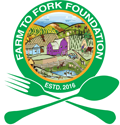Performance of Trichoderma fortified composts in controlling collar rot caused by Sclerotium rolfsii of soybean
DOI:
https://doi.org/10.5455/faa.57557Keywords:
Trichoderma, compost, growth promotion, pathogenicityAbstract
Seedling diseases and collar rot/stem rot (Sclerotium rolfsii) are the main constrains for soybean production in Bangladesh. Number of experiments were undertaken to control seedling mortality and stem rot of soybean using Trichoderma fortified compost at Bangabandhu Sheikh Mujibur Rahman Agricultural University (BSMRAU) research field. Pathogenicity test confirmed that S. rolfsii (isolate SR4) causes 95% seedling mortality therefore, considered as the most aggressive isolate. Trichoderma harzianum (Isolate-Chan 6) was used for inocula preparation with different composting substrates like cow dung, saw dust, rice straw, water hyacinth and poultry manure to prepare Trichoderma fortified composts. Among the composts, Trichoderma fortified poultry manure was found as the best treatment in reducing 75.45% pre- and post-emergence seedling mortality and diseases severity (84.53% reduction) as well as increased yield (80.91% increase) and yield attributing characters such as 55% increase of plant height and 27% increase of 1000-grain weight compared to the control. However, other composts also showed good re- sponse in reducing seedling mortality and growth promotion though they were not similar in performance with Trichoderma fortified poultry manure. Therefore, Trichoderma fortified composts have the immense potentiality to suppress diseases and improve yield of soybean. These studies should be conducted at the farmer’s field before validating the substrates as Trichoderma fortified composts.
Downloads
Downloads
Published
How to Cite
Issue
Section
License
Copyright (c) 2019 by the author(s). This work is licensed under a Creative Commons.

This work is licensed under a Creative Commons Attribution-NonCommercial 4.0 International License.





















